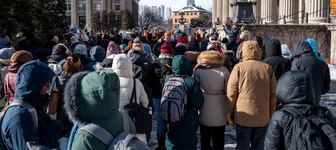Data from the latest Economist/YouGov poll shows that vaccine rejectors are even more likely than vaccinated Americans to think it is safe for them personally and for other unvaccinated adults to socialize without a mask and to travel.
The argument of greater personal freedom coming from vaccination is therefore unlikely to incentivize those who reject the vaccine to receive a shot.
Those Americans who reject the vaccine are more likely to see many activities, including maskless socializing and various forms of travel, as safe for them.
For instance, three in five (63%) vaccine-refusers believe it is safe for unvaccinated people to socialize indoors with other unvaccinated people without wearing a mask. Just 38% of Americans who have gotten at least one COVID-19 shot think it is safe for vaccinated people to socialize indoors with people who are vaccinated sans masks.
But there are many who remain unvaccinated yet don’t explicitly reject the vaccine. They may be planning to get vaccinated (13%) or claim to still be making up their minds (14%). This group is much less sure of the safety of socializing with vaccinated or unvaccinated people or taking a trip.
The difference in concern is clear when looking at the self-reports of likely travel this summer. Two in five (41%) of those who have been vaccinated plan to travel this summer, compared with 30% of the unvaccinated. However, those who explicitly reject getting the vaccine are nearly as likely to say they will travel as those who are vaccinated (38%).
See the toplines and crosstabs from this Economist/YouGov poll
Related: Why YouGov is changing how we ask people whether they’ve received the COVID-19 vaccine
Methodology: The Economist survey was conducted by YouGov using a nationally representative sample of 1,500 US Adult Citizens interviewed online between May 1 - 4, 2021. This sample was weighted according to gender, age, race, and education based on the American Community Survey, conducted by the US Bureau of the Census, as well as 2016 Presidential vote, registration status, geographic region, and news interest. Respondents were selected from YouGov’s opt-in panel to be representative of all US citizens. The margin of error is approximately 2.6% for the overall sample
Image: Getty








